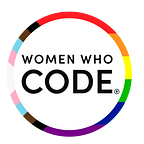PagerDuty: Finding the Right Job With Consistency, Enthusiasm, and Preparation
Written by PagerDuty
Anna Shur-Wilson, Program Specialist, Career Navigation at Women Who Code. interviews Joe Kocevar, Lead Talent Acquisition Partner at PagerDuty, Doni Evans, Senior Talent Acquisition Partner at PagerDuty, and Erika Raskind, Talent Acquisition Partner, at PagerDuty. They share advice for the job search, knowing when to talk about salary, approaching interviews with confidence, and finding the right company match.
AS: Doni, what advice would you give someone who’s trying to evaluate which rules they should apply to and how to preserve their time and energy when applying for a job?
DE: Job titles definitely vary from company to company, so I encourage individuals to focus more on the role itself and the core qualifications. Do not get too caught up in the job title. A public job description can only tell you so much about a role. You will get more detailed information when interviewing with a recruiter and/or hiring manager about the company and the role itself.
If you’re not sure, but you possess at least 80% to 90% of the core qualifications, apply anyway. It never hurts to apply, you never know where a path may lead. After applying, do some research and see who’s within the talent acquisition team at the organization. Reach out to someone on the team and say, “Hey, hope you’re doing well. I applied to this role,” including a link to the job description is very helpful as well.
AS: Erika, how do you determine when a company suits your needs or suits the culture that you’re looking for?
ER: It can be really overwhelming when you’re applying to a lot of places. It seems like everyone has the same mission statement or perks. Before you begin your search, write down a list of three to five things that you are looking for in your next company. Another thing is how do you feel after the interview? Did you leave excited about the role? If you know someone that works there, reach out and get a sense of the company. A lot of people track where they interview, how they feel, and they make certain pros and cons lists. Having that list to go back to is helpful.
AS: Joe, do you have any tips about knowing what salary is appropriate?
JK: That’s an important question. We ask ourselves that question every time we go and look for a new job. We also ask that question to ourselves while we’re working our current job. I would suggest looking to a mentor, someone that you look up to, and get their advice on compensation. Glassdoor or Levels.io are places to research. Levels.io is self-reported and it’s pretty accurate.
AS: Women Who Code has a global Slack space where people can share salaries, post a question, and that kind of thing.
AS: What happens after you apply? What’s the AI, what are the systems in place that you’re seeing right now?
DE: Most companies use an Applicant Tracking System (ATS), which is imperative for tracking, streamlining, and efficiency. ATS also allows talent acquisition teams and hiring managers to easily manage and track incoming applicants and keep data organized and accessible to all the necessary team members to review.
AS: Erika, can you tell us a little bit more about your door screening process and some of those practices?
ER: Two main things that I’m looking at are relevant technologies and years of experience depending on the level of the role. In the screening process, you’re also able to ask the questions that you want. But typically, that’s just kind of how it works, and then if that seems aligned, then you kind of move through the process, it depends on the company, but the next can be a hiring manager screen, and then a virtual interview or maybe a take-home assessment. In terms of your resume, really try to make it as closely tailored to the role that you’re applying for.
AS: How do you show up with confidence?
DE: Preparation is very important. Leverage the relationship that you have with the recruiter that you’re working with. Interviewing is a two-way street, so don’t be afraid to ask your recruiter for guidance on how to best prepare for the interview. It’s part of a recruiter’s job to help you prepare for success in the interview and help you walk into the interview with the utmost confidence. Research and understand the company and its products and services. You want to showcase your skills and abilities throughout the interview, but also, come across as someone that people want to work with.
AS: Erika, what are some things that stand out to you when you are interviewing someone?
ER: Consistency, enthusiasm, and being prepared.
AS: At what point should you bring up compensation expectations?
JK: Whenever you bring up the compensation conversation, it puts you, the candidate in control of that conversation. It’s up to you. I recommend bringing it up earlier and not waiting until the end. Nobody wants to get to the end and realize there’s this huge gap in pay.
AS: How do you not take rejections personally?
DE: Don’t take it personally. There are several reasons that may not be publicly shared with an individual. The role could have been filled by a candidate that started the process sooner, having no bearing on your qualifications. Sometimes, roles couldn’t be repurposed or they can go on hold as internal changes happen. There are a lot of moving parts.
